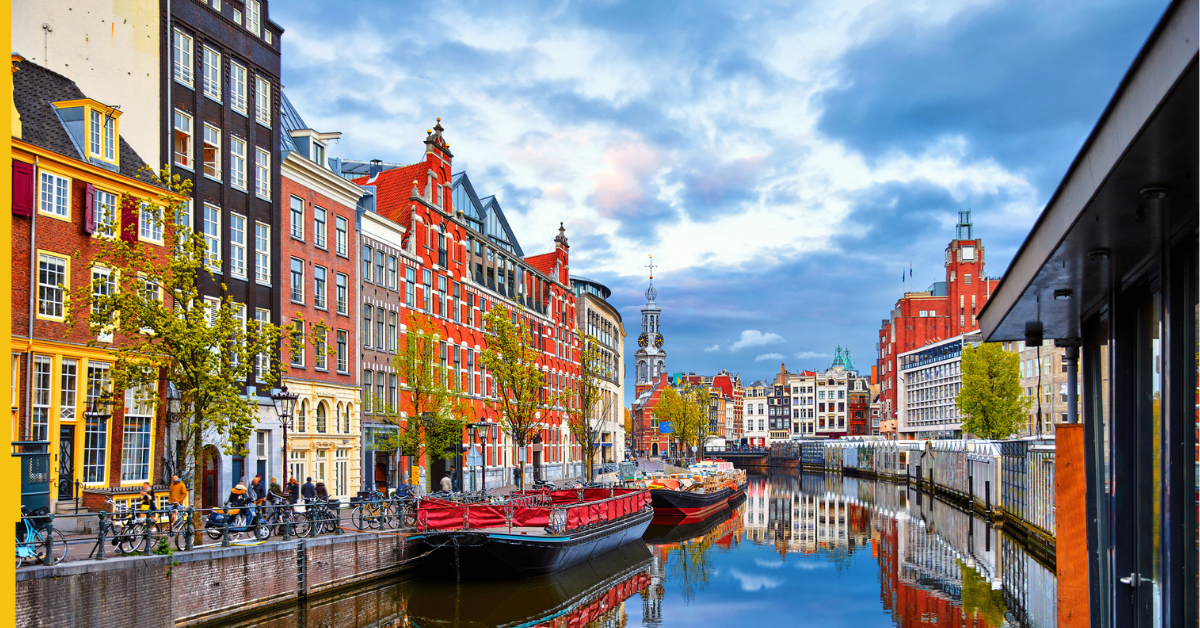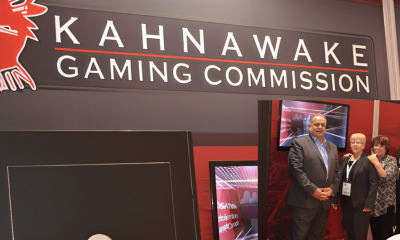Licenses
Dutch Gaming Authority Licence (April 2024)

Dutch Gaming Authority (Kansspelautoriteit)
The Dutch Gaming Authority, or Kansspelautoriteit, is an independent regulatory authority that can issue gambling licences for casinos in the Netherlands. It was established in 2012 and sets out to create a safe environment that honours players. All unlicensed offshore gambling sites are illegal in the country and blocked. The Netherlands has strict laws on gambling in general, but this all serves the purpose of giving the public only the best establishments.
History of Gambling in the Netherlands
The origins of gambling regulation in the Netherlands are mysterious, to say the least. Some records date back as far as the 14th century, indicating that there were some forms of organised gambling. A few centuries later, the Dutch East India Company organised its own lottery to raise revenue to become the first joint-stock company in the world. In 1726, the first nationwide approved Dutch State Lottery was established. Just as a side note, Vincent Van Gogh made a painting about people queueing up to buy tickets for the state lottery. The painting is called “The Poor and Money”.
Skipping to the modern day, the roots of the Dutch laws stem from the need for the post-war economic crisis. The state lottery was reestablished, helping the government to raise enough revenue to reconstruct the destruction caused by the second world war. The Betting and Gambling Act of 1964 made gambling legal in the Netherlands. This covered everything from table games and card-based games to sports betting and more. In 1976, the Holland Casino was established. This state-owned company would open the first casino in the country.
Nowadays, Holland Casino has a monopoly on land-based casinos and operates over 10 casinos in the country. Compared to other EU countries, the Netherlands has quite strict laws on gambling. The state has a legal monopoly on land-based casinos, and online gambling only became legalised in 2021, with the Remote Gambling Act.
Remote Gambling Licence
The Kansspelautoriteit, or KSA, offers numerous licences. There is a licence for slot machines, a multi-year lottery, and a remote gambling licence which is for online operators. The remote gambling licence permits operators to provide the following types of games and bets:
- Casino games where a player plays against the house
- Casino games where players play against each other
- Sports betting
- Horse racing
- Harness racing
Application
Obtaining a remote licence with the Dutch Gaming Authority is a lengthy and complicated procedure. Applicants must have a registered address or central administration either in the Netherlands or in an EU or EEA member state. With the application, operators must provide an integrity form, proof of financial security and submit operational data from the past 2 years and 8 months before the date of application. The KSA will then look into the data and check whether the company provided content to the Dutch market without a licence. They will look for the following points: Whether the company
- offered games on a website that ended with the extension .nl
- offered games that were either partially or fully in the Dutch language
- advertised an offer to the Dutch market, either online, in printed media, on television or radio
- had a domain name that contained typical terms referring to the Netherlands in combination with games of chance
- the website had content that had characteristics with a focus on the Netherlands
- the casino offered a payment method that is exclusively or predominantly Dutch, such as iDEAL
The provider must also sign the anti-money laundering policy (WWFT), give an overview as to how internal supervision is done, indicate whether they intend to outsource certain activities, provide proof that the players' assets are secure, and use the Cruks register. Cruks, or the Central Register of Exclusion of Gaming, is a self-exclusion system which all players must register for. When creating an account at any online casino in the Netherlands, they will need to provide their Cruks registry number.
Fees and Taxation
Applications cost €48,000 and are non-refundable. The KSA maintains the right to deny approvals, in which case the provider will not receive any refund. Operators have to wait for 6 months for applications to be denied or accepted, and the KSA may also delay the process for another 6 months. Though the application fee is not massive, all the stipulations and forms make it difficult to set up new online casinos. Especially for companies that have no native Dutch speakers – as the majority of the documentation is only accepted in Dutch.
Once a casino or sportsbook receives approval, it can begin to operate in the Dutch market. Taxation for gambling is the responsibility of the provider, which is set at 29% of the Gross Gaming Revenue, or GGR. Where there are one-off prizes, these will be taxed 29% only if they are above the threshold of €449.
Pros for Players
Tax is high and the Gaming Authority is scrupulous for operators. As a player though, this will serve to create a very safe environment.
Cruks System
You can only create an account at an online casino if you have a Cruks code. This means you have to submit your details with the Dutch self-exclusion register before committing to any gaming. Once you do, you will have a tool with which you can self-exclude at any casino or sportsbook.
Guaranteed Safety
The KSA has a strict policy on offshore unlicensed casinos. They are all blocked in the country and operators who try to infiltrate the Dutch market are fined severely. Wherever you look, you are bound to find licenced casinos and sportsbooks from trustworthy operators.
Multi-Purpose Licence
Whereas in other countries online sportsbooks and casinos will have to acquire two licences, in the Netherlands they only need one. As a result, there will be more casino & sportsbook operations.
Cons for Players
The Dutch online casino market is very safe for players, but now let's look at some of the downsides.
Dutch Language
The KSA requires online casinos and sportsbooks to use the Dutch language. Whilst operators are free to also add other languages, the promotions, in-game displays, and various other casino content must be offered in Dutch. There may be some casinos that only offer their services in Dutch.
Limited Eligibility
Anyone can play online casinos in the Netherlands. Foreigners and tourists are just as welcome to play as natives, but some operations are exclusively for Dutch citizens.
Options May be Limited
A lot of top game providers have approval from the Dutch Gaming Authority, so online casinos can provide their games. However, there are a lot of developers who are not licenced in the country. Their titles and content will not be available in the Dutch market, and considering it may take up to a year to get approval, the Netherlands can miss out on up-and-coming games.
International Operators
There are a lot of big-name operators who have online casinos and sportsbooks in the Netherlands. The market mostly favoured roulette and blackjack, but since online gambling has been legalised, there is a newfound interest in slots and video poker. For operators to obtain licences, they do not necessarily need to have a physical presence in the Netherlands. As long as they reside in one of the EU or EEA member states, they can apply for a licence with the KSA.
Conclusion
It may come as a surprise that the Netherlands is so rigid with its gambling regulations. Though the state may hold a legal monopoly on all land-based operations, the world of online gambling is open to international operators. This new territory is bound to grab huge interest from the public and presents great business opportunities.
Lloyd is passionate about online gambling, he lives and breathes blackjack and other table games, and he enjoys sports betting.
You may like


Online Casino Licences – Everything You Need to Know (2024)


Kahnawake Gaming Commission Licences (April 2024)


Isle of Man Gambling Supervision Commission (April 2024)


Curacao Gaming Control Board Licences (April 2024)


Alderney Gambling Control Commission Licence (April 2024)


Gibraltar Licensing Authority – Gambling Licenses (April 2024)